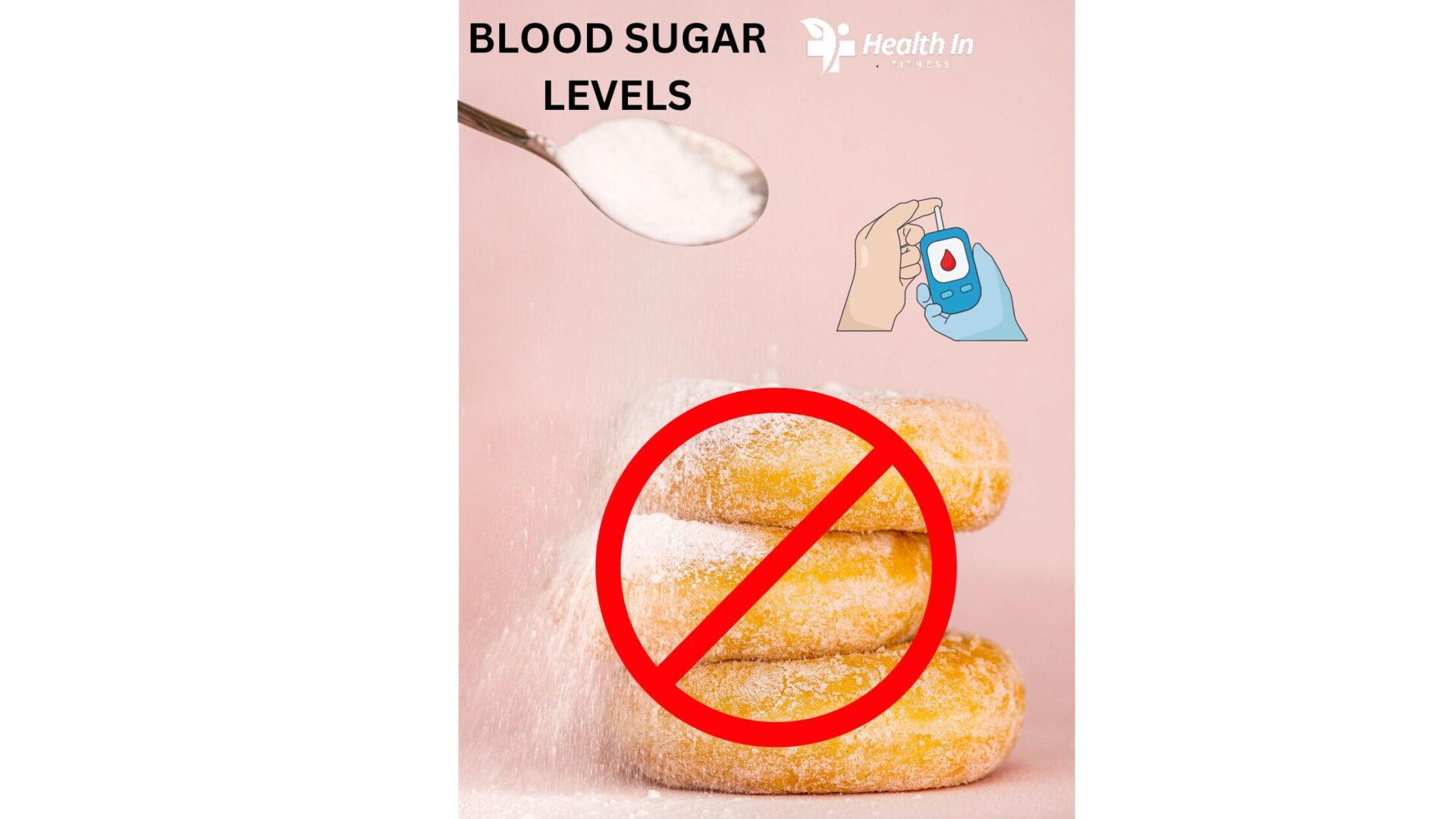Introduction
Blood sugar levels, also known as blood glucose levels, play a critical role in maintaining your overall health. Understanding what they are, how they fluctuate, and their impact on your body is essential for both prevention and management of various health conditions, particularly diabetes. This comprehensive guide will delve into the science behind blood sugar, factors influencing its levels, the symptoms of abnormal blood sugar, and the importance of monitoring and management.
Table of Contents:
- What Are Blood Sugar Levels?
- The Role of Blood Sugar in the Body
- Normal Blood Sugar Levels
- Factors That Affect Blood Sugar Levels
- Diet and Nutrition
- Physical Activity
- Stress and Emotional Health
- Sleep Patterns
- Medications
- Illness and Infection
- High Blood Sugar (Hyperglycemia)
- Causes of Hyperglycemia
- Symptoms of High Blood Sugar
- Long-Term Effects of Hyperglycemia
- Managing High Blood Sugar
- Low Blood Sugar (Hypoglycemia)
- Causes of Hypoglycemia
- Symptoms of Low Blood Sugar
- Risks and Complications of Hypoglycemia
- Managing Low Blood Sugar
- Monitoring Blood Sugar Levels
- Methods of Blood Sugar Monitoring
- How Often Should You Check Your Blood Sugar?
- Understanding Blood Sugar Readings
- Tips for Maintaining Healthy Blood Sugar Levels
- The Link Between Blood Sugar and Diabetes
- Conclusion
1. What Are Blood Sugar Levels?
Blood sugar levels refer to the concentration of glucose in your bloodstream at any given time. Glucose, a simple sugar, is the primary energy source for your body’s cells. It comes from the food you eat, particularly carbohydrates, and is essential for various bodily functions, including the operation of your brain, muscles, and organs.
2. The Role of Blood Sugar in the Body
Glucose is vital because it fuels cellular activities. After consuming food, carbohydrates are broken down into glucose, which enters the bloodstream. The hormone insulin, produced by the pancreas, helps transport glucose from the blood into cells where it is used for energy. Without proper regulation, glucose can build up in the blood, leading to high blood sugar levels or, conversely, drop too low, resulting in hypoglycemia.
3. Normal Blood Sugar Levels
Blood sugar levels are measured in milligrams per deciliter (mg/dL) in the United States and millimoles per liter (mmol/L) in many other countries.
- Fasting Blood Sugar (after at least 8 hours without eating):
- Normal: 70-99 mg/dL (3.9-5.5 mmol/L)
- Prediabetes: 100-125 mg/dL (5.6-6.9 mmol/L)
- Diabetes: 126 mg/dL (7.0 mmol/L) or higher
- Postprandial (after eating) Blood Sugar Levels:
- Normal: Less than 140 mg/dL (7.8 mmol/L)
- Prediabetes: 140-199 mg/dL (7.8-11.0 mmol/L)
- Diabetes: 200 mg/dL (11.1 mmol/L) or higher
- Random Blood Sugar Test:
- Normal: Less than 140 mg/dL (7.8 mmol/L)
- Prediabetes: 140-199 mg/dL (7.8-11.0 mmol/L)
- Diabetes: 200 mg/dL (11.1 mmol/L) or higher
These ranges indicate what is generally considered normal, but it is crucial to consult with healthcare professionals for individualized targets, especially if you have conditions like diabetes.
4. Factors That Affect Blood Sugar Levels
Diet and Nutrition
Your diet is the most significant factor influencing blood sugar levels. Carbohydrates, found in foods like bread, pasta, fruits, and sweets, are converted into glucose in the body, directly raising blood sugar levels.
- Simple Carbohydrates: These include sugars like glucose and fructose, which are found in processed foods, sugary snacks, and fruit juices. They cause rapid spikes in blood sugar.
- Complex Carbohydrates: Found in whole grains, vegetables, and legumes, these carbohydrates break down more slowly, resulting in a more gradual increase in blood sugar.
Glycemic Index (GI): The GI is a ranking system that measures how different foods affect blood sugar levels. Foods with a high GI (70 or above) cause rapid spikes, while those with a low GI (55 or below) have a slower impact on blood sugar.
Physical Activity
Physical activity influences blood sugar levels by increasing insulin sensitivity, which helps the body use glucose more effectively. During exercise, muscles use glucose for energy, leading to a decrease in blood sugar levels. Regular exercise is beneficial for maintaining stable blood sugar levels, but the type, intensity, and duration of exercise can cause variations.
Stress and Emotional Health
Stress triggers the release of hormones like cortisol and adrenaline, which can raise blood sugar levels. Chronic stress can lead to prolonged periods of elevated blood sugar, increasing the risk of developing insulin resistance and type 2 diabetes. Managing stress through techniques such as meditation, yoga, and deep breathing exercises can help regulate blood sugar.
Sleep Patterns
Quality sleep is essential for blood sugar regulation. Poor sleep or sleep disorders like sleep apnea can cause insulin resistance, leading to higher blood sugar levels. Lack of sleep also affects hunger hormones, increasing cravings for high-sugar and high-carb foods, which can further spike blood sugar.
Medications
Certain medications can affect blood sugar levels. For example:
- Steroids can increase blood sugar levels.
- Diuretics may raise blood sugar by causing the body to lose potassium, which is important for insulin function.
- Antipsychotic drugs may impair glucose metabolism, leading to higher blood sugar.
If you are on medication, it’s essential to discuss potential side effects with your healthcare provider to manage your blood sugar levels effectively.
Illness and Infection
When your body is fighting an illness or infection, it releases stress hormones to help combat the condition. However, these hormones can also increase blood sugar levels. People with diabetes are particularly vulnerable to high blood sugar levels during illness, making it important to monitor levels closely when sick.
5. High Blood Sugar (Hyperglycemia)
Hyperglycemia occurs when there is too much glucose in the blood. It is commonly associated with diabetes, but can also occur in people without diabetes due to various factors like stress, illness, or certain medications.
Causes of Hyperglycemia
- Insufficient Insulin Production: In type 1 diabetes, the pancreas produces little to no insulin, leading to high blood sugar.
- Insulin Resistance: In type 2 diabetes, the body’s cells do not respond effectively to insulin, causing glucose to build up in the blood.
- Diet: Consuming large amounts of carbohydrates or sugary foods can lead to hyperglycemia.
- Lack of Physical Activity: Physical inactivity can cause the body to become less sensitive to insulin, leading to higher blood sugar.
- Stress: Physical or emotional stress can trigger the release of hormones that increase blood sugar levels.
Symptoms of High Blood Sugar
- Frequent urination
- Increased thirst
- Blurred vision
- Fatigue
- Headaches
- Difficulty concentrating
- Unexplained weight loss
If left untreated, hyperglycemia can lead to more serious conditions such as diabetic ketoacidosis (DKA) or hyperglycemic hyperosmolar syndrome (HHS), which require immediate medical attention.
Long-Term Effects of Hyperglycemia
Chronic hyperglycemia can cause significant damage to various organs and systems in the body, leading to complications such as:
- Cardiovascular Disease: Increased risk of heart attack, stroke, and high blood pressure.
- Nerve Damage (Neuropathy): High blood sugar can damage nerves, especially in the legs and feet, leading to pain, tingling, or loss of sensation.
- Kidney Damage (Nephropathy): High blood sugar can damage the kidneys’ filtering system, leading to kidney failure or the need for dialysis.
- Eye Damage (Retinopathy): Hyperglycemia can damage the blood vessels in the eyes, leading to vision problems or blindness.
- Foot Damage: Nerve damage and poor blood flow in the feet can lead to serious infections or ulcers, sometimes resulting in amputation.
Managing High Blood Sugar
- Monitor Blood Sugar Levels: Regular monitoring helps you understand how your diet, activity, and medication affect your sugar level.
- Adjust Diet: Eating a balanced diet with controlled portions of carbohydrates can help manage blood sugar levels.
- Exercise Regularly: Physical activity increases insulin sensitivity and helps lower blood sugar.
- Medications: Follow prescribed medications, including insulin or oral hypoglycemics, as directed by your healthcare provider.
- Stress Management: Implement stress-reduction techniques to lower the impact of stress on your blood sugar.
6. Low Blood Sugar (Hypoglycemia)
Hypoglycemia occurs when blood sugar levels drop too low, typically below 70 mg/dL (3.9 mmol/L). It is most common in people with diabetes who take insulin or certain diabetes medications, but can also occur in others due to various factors.
Causes of Hypoglycemia
- Excessive Insulin: Taking too much insulin can cause blood sugar to drop too low.
- Skipping Meals: Not eating enough carbohydrates or skipping meals can lead to hypoglycemia, especially if you take insulin or other medications that lower blood sugar.
- Excessive Alcohol Consumption: Drinking alcohol, especially on an empty stomach, can cause blood sugar levels to drop.
- Intense Physical Activity: Prolonged or intense exercise can lower blood sugar, particularly if not accounted for in meal planning or insulin dosing.
Symptoms of Low Blood Sugar
- Shakiness or trembling
- Sweating
- Dizziness or lightheadedness
- Hunger
- Irritability or mood changes
- Confusion or difficulty concentrating
- Palpitations or rapid heartbeat
- Blurred vision
Severe hypoglycemia can lead to loss of consciousness, seizures, or even death if not treated promptly.
Risks and Complications of Hypoglycemia
- Cognitive Impairment: Repeated episodes of hypoglycemia can lead to cognitive decline and impair your ability to recognize future low blood sugar events.
- Accidents and Injuries: Hypoglycemia can impair judgment and coordination, increasing the risk of accidents, particularly when driving or operating machinery.
- Cardiovascular Problems: Severe hypoglycemia can cause irregular heartbeats or exacerbate heart disease.
Managing Low Blood Sugar
- Immediate Treatment: Consume 15-20 grams of fast-acting carbohydrates, such as glucose tablets, fruit juice, or regular soda. Recheck blood sugar after 15 minutes and repeat if necessary.
- Regular Meals: Eat regular meals with a balance of carbohydrates, proteins, and fats to maintain stable blood sugar levels.
- Monitor Blood Sugar: Frequent monitoring can help you detect and prevent low blood sugar episodes.
- Adjust Medication: Work with your healthcare provider to adjust insulin or other medications if you experience frequent hypoglycemia.
7. Monitoring Blood Sugar Levels
Monitoring blood sugar is crucial for managing and preventing both hyperglycemia and hypoglycemia. It provides real-time data to help make informed decisions about diet, exercise, and medication.
Methods of Blood Sugar Monitoring
- Fingerstick Testing: This traditional method involves pricking your finger to obtain a small blood sample, which is then analyzed by a glucose meter.
- Continuous Glucose Monitoring (CGM): CGM systems use a sensor placed under the skin to continuously monitor blood sugar levels throughout the day and night.
- Flash Glucose Monitoring: Similar to CGM, but it requires scanning a sensor on your arm to get a blood sugar reading.
- A1C Test: This blood test measures average blood sugar levels over the past 2-3 months, providing an overall picture of blood sugar control.
How Often Should You Check Your Blood Sugar?
The frequency of blood sugar checks depends on several factors, including:
- Type of Diabetes: People with type 1 diabetes or those using insulin typically need to monitor their blood sugar more frequently.
- Medication: The type of medication you take can influence how often you should check your blood sugar.
- Lifestyle: Factors like diet, physical activity, and stress levels may require more frequent monitoring.
- Health Status: Illness, infections, or changes in health status may necessitate more frequent checks.
Your healthcare provider can provide personalized recommendations based on your specific needs.
Understanding Blood Sugar Readings
Interpreting blood sugar readings involves understanding the impact of various factors on your health. Trends over time are more informative than isolated readings, so it’s important to track your blood sugar and discuss patterns with your healthcare provider.
8. Tips for Maintaining Healthy Blood Sugar
- Balanced Diet: Focus on a diet rich in whole foods, vegetables, lean proteins, and healthy fats while controlling carbohydrate intake.
- Regular Exercise: Aim for at least 150 minutes of moderate aerobic activity each week, along with strength training exercises.
- Hydration: Drink plenty of water to stay hydrated, as dehydration can affect blood sugar levels.
- Stress Management: Practice relaxation techniques such as mindfulness, meditation, or yoga to manage stress.
- Consistent Sleep: Aim for 7-9 hours of quality sleep per night to support blood sugar regulation.
- Regular Monitoring: Keep track of your blood sugar and make adjustments to your lifestyle and medication as needed.
- Medication Adherence: Take medications as prescribed and discuss any side effects or concerns with your healthcare provider.
- Education: Stay informed about blood sugar management and diabetes to make empowered decisions about your health.
9. The Link Between Blood Sugar and Diabetes
Diabetes is a chronic condition characterized by high blood sugar. Understanding the relationship between blood sugar and diabetes is crucial for managing the disease and preventing complications.
- Type 1 Diabetes: An autoimmune condition where the body attacks insulin-producing cells in the pancreas, leading to high blood sugar.
- Type 2 Diabetes: A condition where the body becomes resistant to insulin or doesn’t produce enough insulin, resulting in elevated blood sugar levels.
- Gestational Diabetes: A type of diabetes that occurs during pregnancy and usually resolves after childbirth, but increases the risk of developing type 2 diabetes later in life.
Maintaining healthy blood sugar is the cornerstone of diabetes management. By doing so, you can prevent or delay complications associated with the disease, such as heart disease, kidney damage, nerve damage, and vision problems.
10. Conclusion
Blood sugar numbers are a vital aspect of your health, influencing your energy levels, mood, and overall well-being. Understanding the factors that affect blood sugar, recognizing the symptoms of abnormal levels, and knowing how to monitor and manage your glucose are essential for maintaining optimal health.
Whether you have diabetes, are at risk for it, or simply want to improve your overall health, managing your blood sugar through a balanced diet, regular exercise, stress management, and proper medication can help you live a healthier and more fulfilling life.
This comprehensive guide provides a detailed exploration of blood sugar, offering valuable information to help you understand and manage your health better. If you have any specific questions or need personalized advice, it’s always best to consult with a healthcare professional who can guide you based on your unique health profile.



